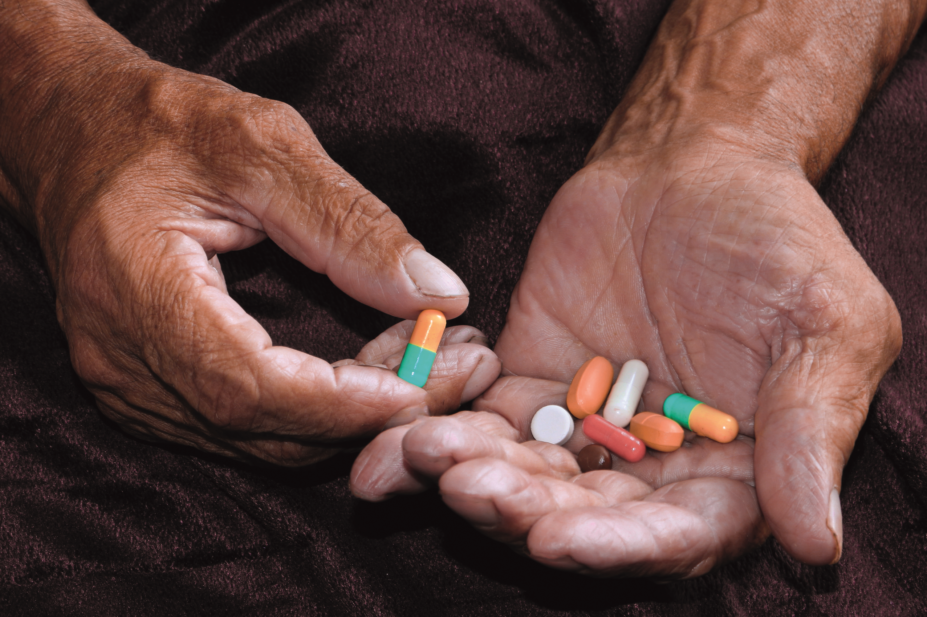
Shutterstock.com

Source: Shutterstock.com
Boots has provided an e-learning package for all staff who handle medication to support the transition from monitored dosage systems to patient pack dispensing
Boots is changing the way it dispenses medication for care home residents from monitored dosage systems (MDS) to patient pack dispensing (PPD) from 1 March 2019.
Boots Care Services customers were sent a letter in January 2019 informing them that the change was being made in line with recommendations from the National Institute for Health and Care Excellence (NICE) and the Royal Pharmaceutical Society (RPS), which were issued in 2014 and 2012 respectively and called for “the supply of medicines in original packs in care homes to be promoted as standard”.
MDS are medicine storage devices with compartments divided into days of the week and various times of each day, while PPD refers to dispensing medicines from the original packaging.
The switch to PPD will occur on care homes’ first medication delivery after 1 March 2019 and Boots has provided an e-learning package for all staff who handle medication to support the transition.
“Every day our pharmacists provide care to thousands of care home residents across the UK and they work closely with care homes to dispense medication both in PPD and in MDS, complemented by a range of additional services,” said Alex Roberts, head of care services at Boots.
“As pharmacies and care homes look to become more digitised and embrace new solutions, including eMAR [electronic medication administration records], many are choosing to move to PPD as their preferred option.
“We are also following guidance promoting the use of PPD from the RPS, NICE, the care inspectorate and others, and are working with some of our smaller care homes to support their move to PPD.”
Lelly Oboh, a consultant pharmacist for older people at Guy’s and St Thomas’ NHS Foundation Trust in London, welcomed the news and said that, in the long term, the changes would present an opportunity to reduce polypharmacy in care home settings.
“We already know people are taking too many medicines — we need to be reviewing this.
“This presents an opportunity to tackle polypharmacy so that, in the long term, people will have fewer medicines. Pharmacists need to encourage nurses and care workers in this and say, ‘we are on this journey with you’.”
However, she warned that there was likely to be an “outcry” in the short term, owing to the sheer number of medicines dispensed in care homes and the extra time it will take nurses to distribute medicines from original packs and bottles rather than MDSs.
“With trained staff, such as nurses, the only advantage of a multicompartment compliance aid is that is helps them do the job quicker, not more safely,” she said. “In the long term, there are so many positives — we’re going to go back to a place where people treat medicines as medicines.”
Karolina Gerlich, chief executive of the National Association of Care and Support Workers, said she hoped that the changes would be considered from the point of view of care workers and their training.
“The safety of the people receiving the medications has to be paramount and adequate training needs to be provided. If Boots is going to start these changes they need to work with care workers to ensure that there will be no gaps left in terms of training and understanding of the different methods of dispensing.”
LloydsPharmacy has also made the move from MDS to PPD for care homes, in line with guidance from the Care Quality Commission (CQC).
“CQC guidance has recommended that multicompartment compliance aids are not the default option for care homes,” said a spokesperson for LloydsPharmacy.
“Where we take on new care home business, we use original pack dispensing. For existing care home customers, we work with the business to develop the best solution for their patients. This may be original pack or MDS depending on their needs.”
- This article was amended on 29 January 2019 to clarify that the move from MDS to PPD is a phased approach from 1 March 2019 and that not all care homes will be affected on this date.


